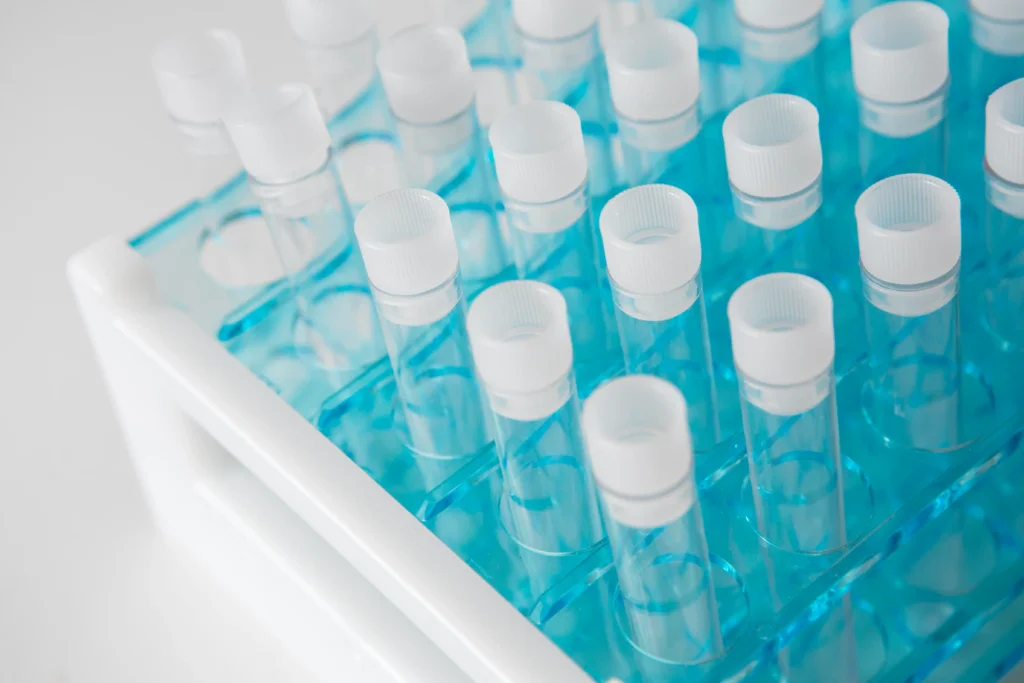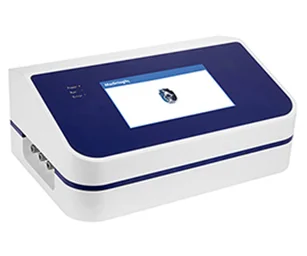How a Filter Integrity Tester Ensures Reliable In-Process Filtration
How a Filter Integrity Tester Ensures Reliable In-Process Filtration

In drug manufacturing, ensuring the strength of filtering systems is vital to keeping products safe and meeting rules. A filter integrity tester is a key tool that guarantees dependable filtering during production, protecting both product quality and user safety. At MedIntegriti, we provide advanced testing tools that follow strict industry guidelines, like FDA and GMP standards. This blog explains how filter integrity testers work, why they matter, and how our solutions at MedIntegrity ensure strong filtering processes for manufacturers like you.

Importance of Filter Integrity in In-Process Filtration
Filtering is a foundation of quality control in industries like drugs, where small flaws can cause big problems. Knowing the role of filter integrity testing helps keep your manufacturing processes trustworthy and compliant.
Role of Filtration in Critical Manufacturing Processes
Filtering systems are essential for removing dirt, germs, and impurities from liquids and gases during production. In drug manufacturing, sterile filtering ensures medicines are free from harmful germs. Air filtering also protects cleanroom spaces. A strong filtering system directly affects product purity and patient safety. It is crucial in important processes like aseptic filling or API creation.
Risks Associated with Filter Failure During Processing
A damaged filter can lead to serious issues, including:
- Contamination: Germs or particles can make a batch unsafe, causing expensive recalls.
- Rule Violations: Not meeting standards like GMP or FDA can lead to fines or production stops.
- Process Delays: Filter failures can slow down production, disrupting schedules.
Filter integrity testing reduces these risks. It checks that filters work correctly, ensuring steady product quality.
Regulatory Expectations for Filter Integrity Verification
Regulatory groups, like the FDA and EMA, require filter integrity testing to follow Good Manufacturing Practices (GMP). Standards like 21 CFR Part 11 demand electronic records for tracking. Our V8.0 Filter Integrity Tester supports this with advanced audit trail features. Regular testing ensures your processes meet these rules, lowering the chance of non-compliance.
Filter integrity’s importance leads to exploring the technical ideas behind testing, which allow accurate and dependable checks.
Principles Behind Filter Integrity Testing
Filter integrity testing uses scientific methods to check a filter’s performance. Understanding these methods helps you pick the best one for your needs.
Key Mechanisms: Diffusion, Bubble Point, and Pressure Hold Tests
Filter integrity testing uses several methods, each suited for specific filter types and tasks:
| Test Method | Description | Applications |
| Diffusion Test | Measures gas flow through a wet filter at a set pressure. | Sterilizing-grade liquid filters |
| Bubble Point Test | Finds the pressure where gas passes through a wet filter’s holes. | Membrane filters |
| Pressure Hold Test | Tracks pressure drop in a closed system to spot leaks. | Large-scale filtering systems |
Each method ensures filters meet their required hole size and strength standards.
Differentiating Between Destructive and Non-Destructive Testing Methods
- Destructive Testing: Damages the filter to test its performance. It’s used during development. This method isn’t suitable for production use.
- Non-Destructive Testing: Tests filters without harming them, making it perfect for pre- and post-use checks in production. Our 5 Filter Integrity Testerperforms well in non-destructive testing. It gives accurate results without affecting filter performance.
Criteria for Selecting an Appropriate Test Method
Choosing the right test method depends on:
- Filter Type: Membrane filters may need bubble point testing. Cartridge filters might use pressure hold tests.
- Process Needs: High-risk tasks, like sterile drug production, require strict testing methods.
- Regulatory Rules: Ensure the method follows guidelines like USP or EP.
Understanding these ideas helps you decide when and how to use filter integrity testing effectively.
When to Perform Filter Integrity Testing
Timing is key in filter integrity testing to ensure steady performance during production. Knowing when to test keeps processes reliable.
Pre-Use vs. Post-Use Testing Scenarios
- Pre-Use Testing: Done before filtering to confirm filters are intact and correctly installed. It prevents faulty filters from being used.
- Post-Use Testing: Done after filtering to verify the filter stayed intact during the process. This ensures no breaches happened.
Both scenarios are vital for validating the filtering process and meeting rules.
Frequency and Timing Within the Production Cycle
Testing frequency depends on the production cycle and risk level. High-risk processes, like aseptic manufacturing, may need testing before and after each batch. Routine schedules should follow standard operating procedures (SOPs) and regulatory rules.
Situations Requiring Re-Testing or Validation
Re-testing is needed in cases like:
- Filter replacement or system upkeep.
- Unexpected process issues, like pressure spikes.
- Regulatory audits needing extra validation.
Knowing when to test leads to understanding how filter integrity testers work in real-world settings.
How a Filter Integrity Tester Operates in Practice
A filter integrity tester is a precise system built to deliver accurate and repeatable results. Here’s how it works in action.
Core Components of a Filter Integrity Tester System
Pressure Sensors and Flow Measurement Instruments
Accurate pressure sensors and flow meters are vital. They detect small changes in pressure or gas flow. This ensures trustworthy test results. Our testers at MedIntegrity use advanced sensors for dependable performance.
Automated Control Units and Data Logging Features
Automated control units simplify testing. They run pre-set protocols. Data logging ensures tracking. Our V8.0 model includes audit trail functions that follow 21 CFR Part 11. This makes it ideal for regulated settings.
Step-by-Step Overview of the Testing Process
System Setup and Calibration Procedures
- Connect the filter to the tester.
- Calibrate the system for accurate pressure and flow measurements.
- Enter test settings based on the filter type and test method.
Execution of the Selected Test Method
- Wet the filter if needed and start the test (e.g., bubble point or diffusion).
- The system applies controlled pressure and checks the response.
- Results are recorded automatically for review.
Analyzing Results Against Acceptance Criteria
Compare test results to set standards, like minimum bubble point pressure or maximum diffusion flow. Any issues trigger further checks or filter replacement.
The practical use of filter integrity testers shows their value in improving manufacturing processes.
Benefits of Using a Filter Integrity Tester in Manufacturing Environments
Filter integrity testers offer many advantages that directly affect your operations.
Enhancing Product Safety and Process Reliability
By checking filter performance, testers prevent contamination. This ensures your products meet strict safety standards. Dependable filtering builds trust with customers and regulators.
Supporting Compliance With Industry Standards (e.g., GMP, FDA)
Our testers, like the V8.0, are built to meet GMP and FDA rules. They include electronic signature and data tracking features. This simplifies compliance efforts.
Minimizing Downtime Through Rapid Detection of Faults
Quick and accurate testing spots filter issues early. This reduces production delays and costly rework. It keeps your operations running smoothly.
Despite these benefits, filter integrity testing can have challenges that need careful handling.
Challenges in Filter Integrity Testing and How to Address Them
Tackling potential issues ensures consistent and trustworthy testing results.
Dealing With Environmental Variables (e.g., Temperature, Humidity)
Environmental factors can affect test accuracy. For example, temperature changes may alter pressure readings. To fix this:
- Test in controlled settings.
- Use testers with built-in adjustments for environmental factors.
Ensuring Operator Competence and Consistency in Execution
Operator training is key for reliable results. Provide regular training and SOPs to ensure consistency. Our team at MedIntegrity offers full support to help your staff master our equipment.
Troubleshooting Common Errors or Inconsistent Results
Common issues include improper filter wetting or wrong system setup. Fix these by:
- Following manufacturer guidelines for setup.
- Regularly calibrating equipment for accuracy.
With these challenges handled, let us share how we at MedIntegrity support your filtering needs.
Introducing MedIntegrity: A Trusted Supplier of Filter Integrity Testers
We are MedIntegrity, a U.S.-based leader in precise testing tools for the drug industry. Our focus on quality and innovation ensures your filtering processes meet high standards.
Overview of MedIntegrity’s Capabilities and Product Offerings
We offer a range of advanced products, including our flagship V8.0 and V6.5 Filter Integrity Testers. They are built for accuracy and compliance. Our solutions support various tasks, from sterile filtering to glove testing, helping thousands of drug companies worldwide.
Commitment to Quality, Accuracy, and Regulatory Compliance
Our products are designed to meet FDA, GMP, USP, and EP standards. They include features like wireless technology and audit trails. We aim to provide reliable, easy-to-use solutions that boost your efficiency. For more details, contact us.
Summary of Key Takeaways on Reliable In-Process Filtration with Integrity Testing
Filter integrity testing is crucial for product safety, rule compliance, and process efficiency. Using advanced testers like those from MedIntegrity, you can reduce risks and maintain high standards. Our solutions help you achieve dependable filtering with confidence.
Frequently Asked Questions (FAQs)
What types of filters can be tested using a filter integrity tester?
Filter integrity testers are flexible. They can test various filters, like membrane, cartridge, and capsule filters used in drug, biotech, and food industries. Our V8.0 and V6.5 models support many filter types, ensuring they fit your specific needs.
Is filter integrity testing mandatory for all pharmaceutical manufacturing processes?
Filter integrity testing isn’t always required. However, it’s needed for critical processes like sterile filtering under rules like GMP and FDA. It ensures product safety and compliance, especially for injectable drugs or aseptic processes.
Can filter integrity testers be integrated into automated production lines?
Yes, modern testers like our V8.0 are built for integration into automated systems. They have automated control units and data logging features. This allows seamless use in production lines for real-time monitoring and compliance.







